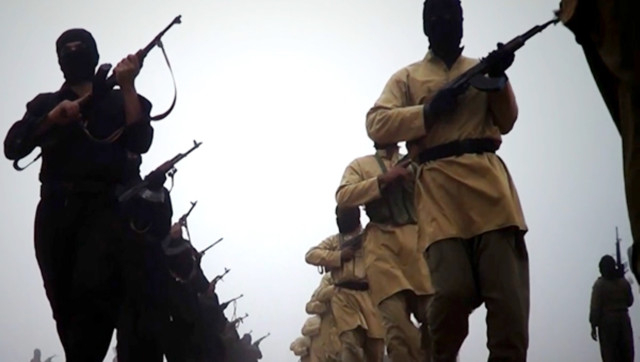
Dubai: The infantryman and his colleagues were already worn down after six months of fighting militants in western Iraq, men flush with weapons and zeal. Army commanders had no answer for the daily deadly ambushes and no broader strategy for prevailing in the longer war.
The final straw was the death of a friend, killed two weeks ago by a sniper’s bullet. The infantryman, Bashar Al Halbousi, deserted, making the same choice as hundreds of other soldiers in his battalion, he said.
“The state is weak,” Al Halbousi said. “This will be an endless battle.”
The toll of the desertions came into sharp relief on Tuesday, as soldiers and their commanders abandoned bases in Mosul, ceding Iraq’s second-largest city to extremist fighters belonging to the Islamic State of Iraq and the Levant (Isil).
The fleeing troops left weapons, vehicles and even their uniforms behind, as militants took over at least five army installations and the city’s airport. In a desperate bid to stem the losses, the military was reduced to bombing its own bases to avoid surrendering more weapons to the enemy.
US officials who had asserted that the $14 billion (Dh48 billion) that Washington had spent on the Iraqi security forces would prepare them to safeguard the country after US troops left were forced to ponder images from Mosul of militants parading around in captured Humvees.
Now, Mosul, which nearly became part of French-controlled Syria after the first world War, when the allies redrew the map of the Middle East, could become an even more important base for the group as it pursues its stated goals of erasing the border with Syria and establishing an Islamic state that transcends both.
Ayham Kamel, director of the Middle East and North Africa for the Eurasia Group, a political risk consulting firm in Washington, said that the militant group would “use cash reserves from Mosul’s banks, military equipment from seized military and police bases and the release of 2,500 fighters from local jails to bolster its military and financial capability.”
For Nouri Al Maliki, the violence in Mosul represents a significant political challenge as he tries to secure a third term as prime minister. His coalition won the most seats in Parliament in national elections in April, but not a majority, and he has been negotiating with other factions to form a new government.
Michael Rubin, a scholar at the American Enterprise Institute, a conservative think-tank in Washington, said the main priority now was to prevent the creation of a bigger vacuum in northern Iraq that Al Qaida affiliates could exploit. The US needed to help the Iraqi government win a decisive military victory over the insurgents rather than seek some sort of political solution.
“To a great extent, the insurgents in Mosul today are the same groups of people that Petraeus once tried to buy off,” Rubin said..
Although there has been a debate within the administration over the past year about using drones to target militants in northern Iraq, the official line from the Pentagon is that there will be no direct US involvement in the conflict. “This is for the Iraqi security forces and the Iraqi government to deal with,” Admiral John Kirby, Pentagon spokesman, said.
For the US to use air power in a heavily built-up area such as Mosul would require a substantial intelligence presence on the ground — something the Obama administration is loath to authorise.
Anthony Cordesman, a Middle East expert at the Centre for International and Strategic Studies in Washington, said that one of the roots of the crisis in Mosul was the way the government of Al Maliki had alienated the country’s Sunnis through a mixture of repression, power grabs and poor governance.
Yet if the US pressures Maliki too hard, it could push him even more towards Iran, with which he has strong ties. “It is a Catch-22,” he said. “The risk is that we could end up giving people the tools to continue the repression, creating an even more hostile and divided country.”
— Compiled from agencies












